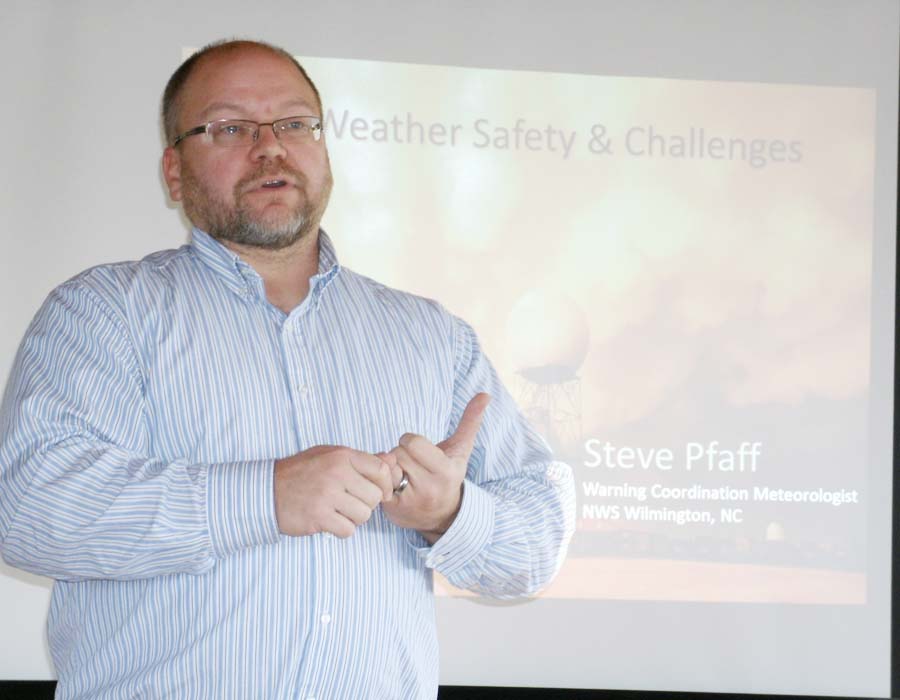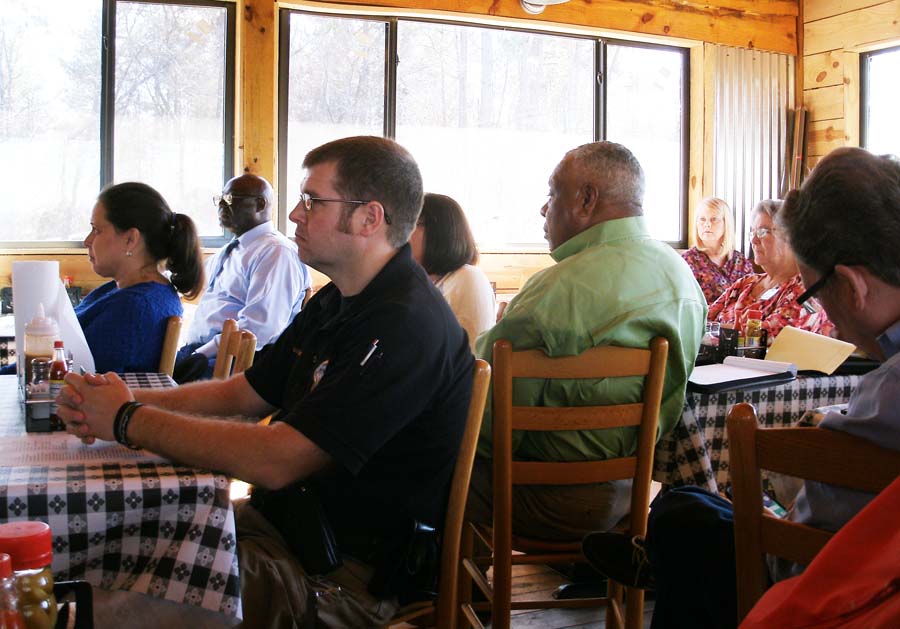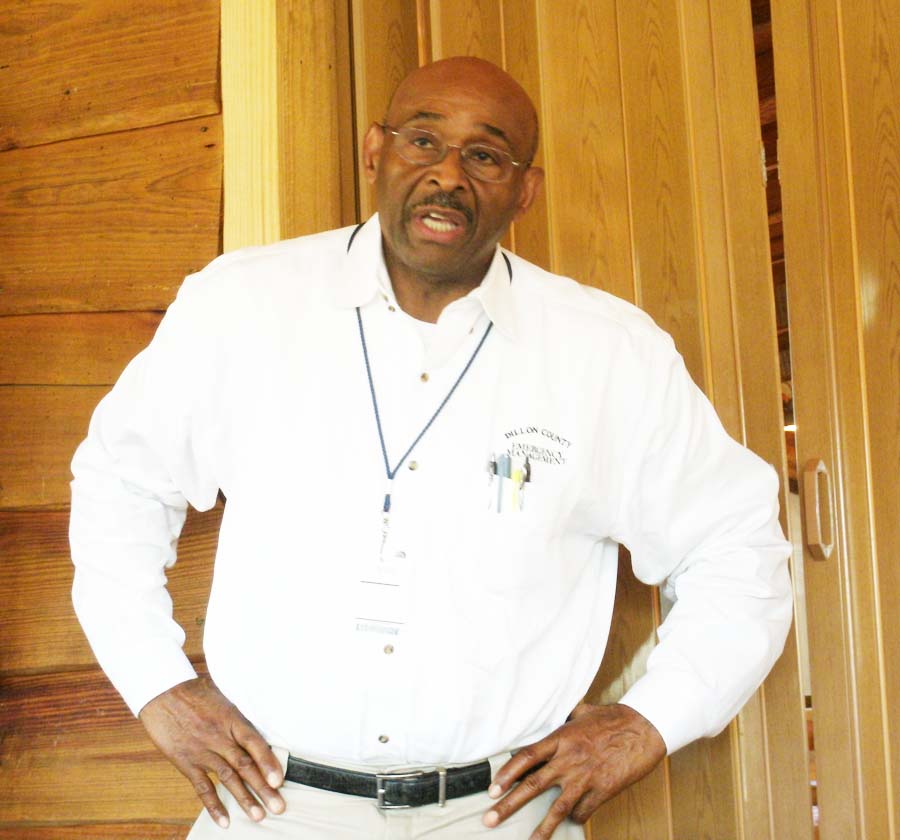
By Betsy Finklea
Steve Pfaff, the Warning Coordination Meteorologist for the National Weather Service in Wilmington, N.C., spoke about weather awareness at the Dillon County Local Emergency Planning Commission meeting.

Pfaff said they can’t do a perfect forecast, but the challenge is in painting the picture for the public. For example, he said it only takes one-half inch of ice to bring down power lines and one-fourth inch of ice to bring down trees, but it is sometimes difficult to get this concept across to people.
Pfaff said Dillon County and its sister counties had been through a great deal. Pfaff said that he has served this area since 1998, and in that time, he has worked four 100-year floods.
Pfaff’s office is located at the Wilmington International Airport. His area of responsibility includes, Darlington, Dillon, Florence, Marlboro, Horry, Williamsburg, and Georgetown, S.C. counties and Robeson, Columbus, Brunswick, New Hanover, Bladen, and Pender, N.C. counties.
The forecaster is Tim Armstrong. He uses satellite, radar, and computer model data.

Pfaff said one can have the best technology and the best forecast, but if people don’t respond, people will die.
Pfaff spoke about the Weather Ready Nation. The Weather Ready Nation is about building community resilience in the face of increasing vulnerability to extreme weather. It helps fill in a gap that exists. Agencies, civic groups, clubs, etc. can sign up on the National Weather Service web page. WRN Ambassadors will be sent safety information to share with other people. “Information is powerful,” said Pfaff. He said anybody needs to be weather ready.
Pfaff then covered some weather misconceptions. Pfaff said all thunderstorms produce lightning. Lightning has a better chance of hitting taller objects.
“Thunder is mother nature’s warning sign,” said Pfaff. “If thunder roars, go indoors,” said Pfaff. He said not to go out until 30 minutes after a storm ends to give it time to clear.
Pfaff said to stay away from tall objects. Metal and water are good conductors of electricity. He said in lightning, one shouldn’t go under trees, picnic shelters, or open wall areas because one could get hit by side flash lightning.
Flooding was another topic discussed. Never drive through flooded roads. Never go near flooded drainage ditches. Pfaff also noted that flooding dangers increase at night. It only takes six inches of flowing water to push a car off the road and one foot of flowing water to push an SUV off the road. “It doesn’t take much,” Pfaff said. “Flooding is the number on thunderstorm-related killer.”

During Hurricane Matthew, there were six flood-related drownings. Five out of six people were swept off the road. He said the National Weather Service has a campaign called “Turn Around, Don’t Drown.”
Pfaff cautioned those at the meeting to be careful where they get their information. He said to be cautious of maps, etc. on social media. He said to rely on credible sources such as newspapers and TV stations.
Pfaff said if one sees anything bad, the National Weather Service needs to hear about it so submit a report on their website. He said to not assume they have heard about it.








